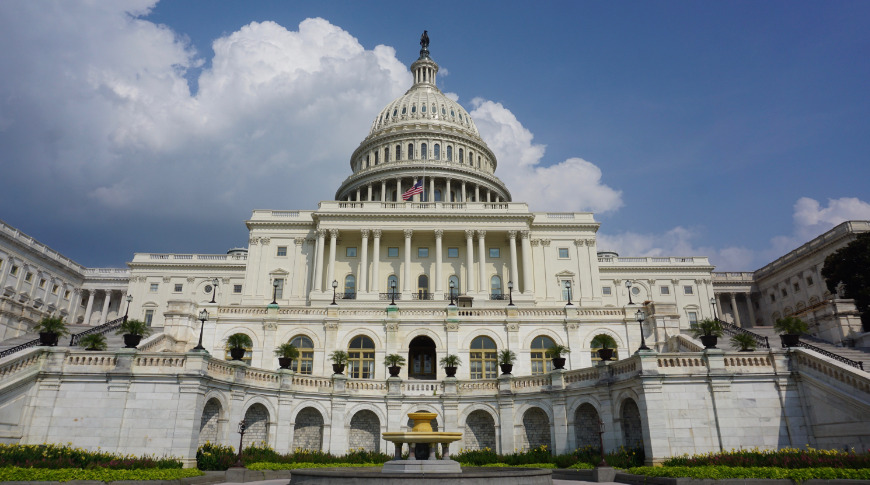As one front in a battle against big tech influence and power, more Democratic leaders are examining Section 230 of the Communications Decency act, and its role in protecting tech companies.
The previous administration sought to repeal Section 230 altogether, but was never able to get it done. Now, President Biden says he is open to debate on how to reform Section 230 rather than repeal it.
According to Reuters the uproar surrounding Section 230 stems from the January 6 attack on the Capitol. Lawmakers worry that tech companies are protected from any damage they may cause when their platforms enable radicalization or are used for planning such events.
Democratic Representative Tom Malinowski has begun discussions surrounding legislation that will hold companies legally liable for content. If content is promoted using algorithms designed to increase profits and leadership, then companies will be held responsible.
"This is a priority for me, and we have had preliminary conversations with the White House on a path forward," Malinowski said.
Democratic Representative David Cicilline, chairman of the House Judiciary Committee's antitrust subcommittee, wants more antitrust enforcement against Big Tech. The subcommittee previously released a 400-page report on the state of competition in the digital economy that addressed companies like Facebook and Apple.
Scott Wallsten, president of the Washington-based Technology Policy Institute, says that conversations surrounding Section 230 reforms and other Big Tech issues will inform the president's thinking. This will at the least get White House advisors thinking about what needs to be done.
"I think they are trying to develop a more well-thought-out position," Wallsten said of White House officials. "But I must add, a lot of this will take time - nothing in terms of policy positions will be immediate."
These legislators are not the first to push for Big Tech reform in the new administration. Recently, a new bill was proposed to give the US government greater power to prevent mergers. Such legislation would also target the App Store as a platform that operates on its parent company's devices.
Another bill was introduced by a trio of Democratic Senators called the Safe Tech Act. This bill is a direct call to dramatically revise Section 230 and would hold companies liable whenever any monetization is attached to user-generated content — even advertisements. If any form of payment or advertising revenue is found to be inline with content that deemed harmful, the platform holder would be held responsible.
The Safe Tech Act would allow individuals to file lawsuits against companies over materials that cause "irreparable harm."
 Wesley Hilliard
Wesley Hilliard







-m.jpg)






 Charles Martin
Charles Martin
 Christine McKee
Christine McKee

 Malcolm Owen
Malcolm Owen
 Andrew Orr
Andrew Orr
 William Gallagher
William Gallagher
 Sponsored Content
Sponsored Content








4 Comments
I think there is a meaningful difference between posts individuals make (speech on the platform), and recommendations companies make (speech by the platform). The major issue—which has been demonstrated repeatedly—is that algorithms optimized for "engagement" are ultimately trying to get people addicted, and extremist media is addictive, so they recommend it. Targeting just those recommendations is the scalpel to the hand grenade of removing Section 230 entirely.
I also think most of the goal could be accomplished while leaving Section 230 in place with no modifications. Recommendations of what to view next from the platform aren't part of what the user posted. If YouTube and Facebook had not recommended conspiracy nonsense for so long, we wouldn't have millions of people thinking world leaders are literally drinking the blood of children who are kept in tunnels under major cities.
When a select group of large companies, actively suppress news on one candidate, and refuse to cover stories on another (ie. Hunter Biden's laptop, China ties to Biden family, Flip/Flop on Fracking, etc), refuse to acknowledge any positive news on a party - you are interfering not only with Free Speech, you are interfering with free elections. Taking this a step further, when this group of companies actively colludes to remove competition, who opt to present ALL SIDES of a story, by removing their distribution, their ability to operate, attacking their lawyers, and make claims that are baseless - this is tyranny.
Freedom of Speech doesn't exist to protect popular opinions, as Thomas Jefferson wrote, this Amendment exists to protect Unpopular opinions.
Section 230 protects these companies from what their posters say; however when the company decides to silence and ban users for saying something they do not agree with, they cease to be mere publishers, and are "Editors".
If something can be destroyed by the truth; then it should be destroyed by the truth
So far, none of the proposals I’ve seen would do anything to take care of the real issues out there. In fact, the proposals like the Safe Tech Act and other 230 proposals would make censorship far worse and lead to much less speech. There are a lot of problems beyond anti-trust, which I do think is a problem in itself. You have companies engaging in likely fraud and discriminatory behavior based on political views. Their censorship and clear political bias is affecting elections. The only way I see out of this is having these large platforms essentially be considered common carriers. The fact of the matter is companies like Twitter and Facebook absolutely love some of the regulatory proposals being put out there. It would give them free reign to engage in censorship of views they don’t like.